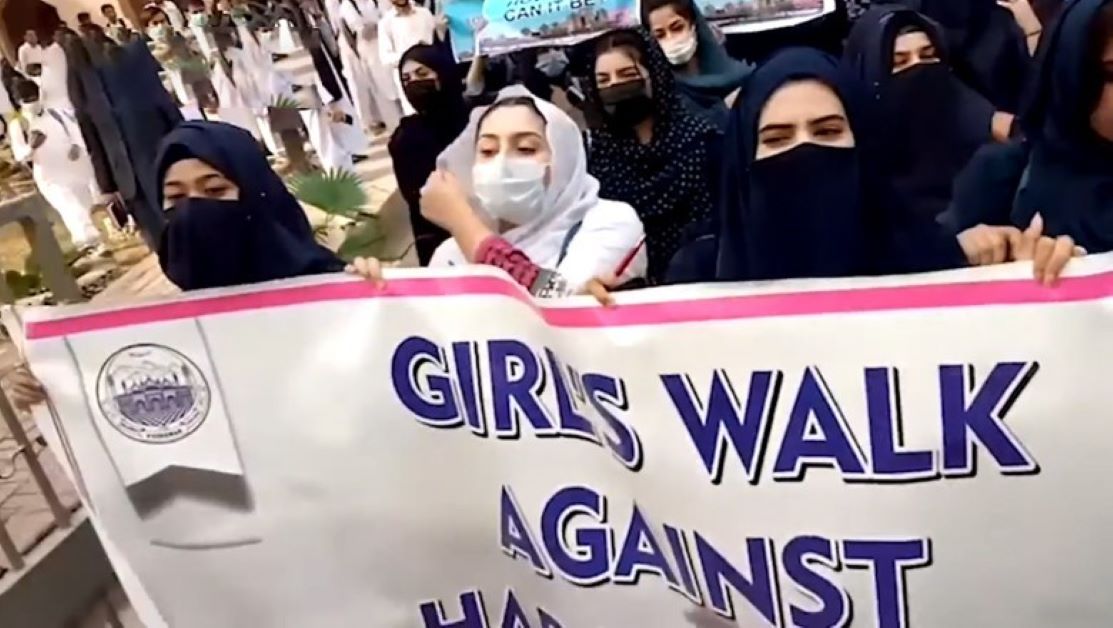In a momentous move to ensure the safety and security of female students in Khyber Pakhtunkhwa (KP), Chief Minister Ali Amin Gandapur has ordered the immediate enforcement of anti-harassment laws across all public sector universities in the province. This initiative aims to create a secure and inclusive environment for female students. Ensuring they can pursue their education without fear of harassment or intimidation.
The directive, which was formally issued by the Chief Minister’s Secretariat and communicated to the Higher Education Department (HED), signals the KP government’s commitment to upholding the rights and dignity of women in educational institutions.
Need for Anti-Harassment Laws in KP Universities
Pakistan has established legal frameworks to combat harassment, such as:
- Protection Against Harassment of Women at the Workplace Act
- HEC’s Harassment Policy Guidelines
- University specific Codes of Conduct
Many public universities in KP have struggled to fully implement these measures. The lack of proper implementation has led to inadequate protection for female students. Numerous harassment cases in KP universities have gained widespread media attention. The frequency of these incidents and institutional inaction raised concerns.
Allegations of ineffective complaint response mechanisms prompted action. Chief Minister Gandapur views the incidents as legal violations and a failure of moral values. The provincial government has intervened to address these issues and provide solutions.
Chief Minister’s Response and Policy Stance
Chief Minister Ali Amin Gandapur expressed grave concern regarding the growing number of harassment cases within KP universities. In his statement, the CM emphasized that harassment in any form, whether physical, verbal, or psychological, will not be tolerated in educational institutions. He underscored the need for educational environments that are conducive to learning and free of fear, where female students can feel safe and supported while pursuing their academic goals.
There is zero tolerance for harassment in educational institutions, said Gandapur. We must ensure that our daughters feel safe and supported while pursuing their education. His stance clearly demonstrates the KP government’s zero tolerance policy toward harassment in all educational settings. This policy aims to restore confidence among female students and their families. Ensuring that the next generation of women can access education without fear of discrimination or harassment.
Directive to the Higher Education Department
Directive by Chief Minister Gandapur
- Clear, time bound instructions for the Higher Education Department (HED) to implement anti-harassment laws in KP public universities.
- HED tasked with ensuring accountability and increasing awareness among female students and university staff about harassment laws.
- The initiative aims to educate individuals on their legal rights and how to report harassment.
Mandatory Measures for Universities:
These campaigns aim to promote respect and a harassment free campus environment.
Harassment Inquiry Committees:
- Must operate in line with national anti-harassment laws.
- Must include at least one female member for representation in decision making.
Harassment Focal Person:
- Designated focal person responsible for handling complaints and offering guidance.
- Contact details to be publicly available on university websites for easy access.
Confidential Reporting Systems:
- Universities must set up confidential and accessible reporting systems following HEC protocols.
- Systems must be available to both students and staff for safe and confidential reporting.
- All complaints must be investigated promptly with proper support for victims.
Awareness Campaigns:
- Universities are required to conduct regular seminars, workshops, and campaigns to educate students and staff.
- Topics include harassment laws, reporting mechanisms, and available support systems.
The 10 Day Deadline for Compliance
The Chief Minister’s directive includes a strict deadline for universities to implement the required changes and submit compliance reports to the Higher Education Department. This tight timeline emphasizes the urgency of the matter and the government’s commitment to ensuring that universities take immediate action. Any delays or failure to comply with the directive will result in consequences for the universities, including administrative penalties or legal action against responsible officials.
Consequences of Non-Compliance
- Failure to establish harassment inquiry committees.
- Delays in appointing focal persons.
- Failure to set up functional reporting systems.
Result of Non-Compliance:
- Legal action will be taken against responsible officials.
- Universities failing to comply may face sanctions or penalties from the provincial government.
Message from the KP Government:
- The aim is to create safe and secure educational environments for female students.
- The government is serious about enforcing anti-harassment laws.
Expected Outcomes and Civil Society Support
If fully implemented, this initiative is expected to significantly improve the safety and security of female students in KP universities. The creation of effective reporting systems, the establishment of inquiry committees, and the implementation of awareness campaigns will help restore trust among female students and their families. It will also foster greater accountability within academic institutions, ensuring that universities prioritize the well being of their students.
Parhlo Pakistan
For more information about women’s rights and educational policies in Pakistan, you can visit ParhloPakistan. ParhloPakistan is a prominent online platform dedicated to raising awareness about important societal issues, offering a space for voices and stories that matter. As a source of credible news, ParhloPakistan empowers individuals with the information they need to advocate for change, including in areas such as gender equality, education, and social justice. Their commitment to promoting a more inclusive society aligns with the recent efforts of the KP government to address harassment in universities.
Conclusion
The implementation of anti-harassment laws in KP universities is a crucial step toward creating a safer and more inclusive educational environment for female students. Under the leadership of Chief Minister Ali Amin Gandapur, the provincial government has shown its commitment to tackling harassment. Head on and ensuring that educational institutions in KP prioritize the well being and security of their students. As universities implement these changes, they aim to set a model for other provinces in Pakistan, ultimately fostering a more respectful and harassment-free education system across the country.
Visit our blog section for the latest updates on education, safety laws, and more!




